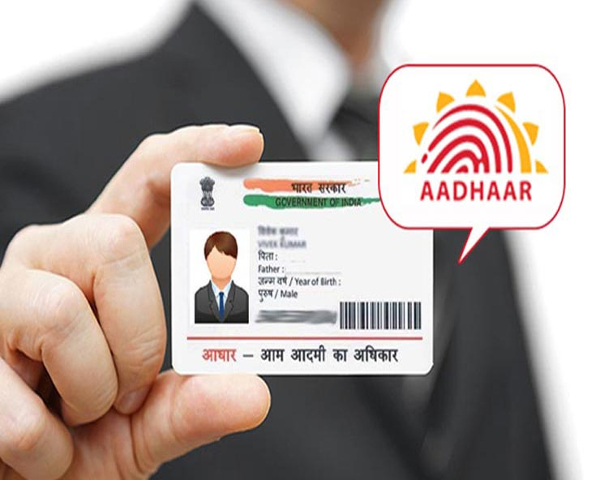Despite opposition members’ protests over multiple issues including the Lakhimpur Kheri violence, the Lok Sabha enacted a law linking electoral roll data with the Aadhaar ecosystem on 20th December, 2021.
After a brief debate in which some opposition members urged that it be submitted to a parliamentary commission, the Election Laws (Amendment) Bill 2021, led by Law Minister Kiren Rijiju, was passed by voice vote.
Rijiju rejected the demand, claiming that the Standing Committee on Law and Personnel had already offered and endorsed many measures included in the bill.
The bill, according to the minister, will “purify” the electoral system and eliminate multiple entries.
The Lok Sabha was later adjourned for the day, amidst opposition members’ continued protests.
Rijiju also stated that the government desired a comprehensive debate on the Bill but was unable to do so due to the ruckus in the House.
The minister claimed that the Bill, which is gender-neutral and contains four qualifying dates for election registration, is in line with the Supreme Court’s decision.
Adhir Ranjan Chowdhury, the Congress leader and Supriya Sule, the NCP leader, questioned why the government was rushing this vital Bill through.
Many members of the opposition urged polling the public on such a significant piece of legislation.
This is not the way to enact laws, and the RSP’s N. K. Premchandran believes that a real debate and discussion should take place.
Ritesh Pandey (BSP), Kalyan Banerjee (TMC), Asaduddin Owaisi (AIMIM), and E T Mohammed Basheer were among those who opposed the Bill.
The bill proposes allowing electoral registration officers to ask for Aadhaar numbers from people who want to register as voters “for the purpose of establishing identity.”
It also aims to give electoral registration officers the power to ask for Aadhaar numbers from “persons already included in the electoral roll for the purposes of authentication of entries in the electoral roll, and to identify registration of the same person’s name in the electoral roll of more than one constituency or more than once in the same constituency.”
At the same time, the amendment Bill states that “no application for inclusion of a person’s name in the electoral roll shall be denied, and no entries in the electoral roll shall be deleted because an individual is unable to furnish or intimate his or her Aadhaar number due to such sufficient cause as may be prescribed.”
Such individuals will be permitted to provide any other alternative documentation that may be required.
Various provisions of the Representation of the People Act will be changed, according to the Bill circulated to Lok Sabha members ahead of its introduction.
Section 23 of the RP Act would be altered to facilitate integration of electoral roll data with the Aadhaar ecosystem “to limit the scourge of multiple enrolment of the same individual in different places,” according to the Bill’s Statement of Objects and Reasons.
The RP Act’s Section 14 will be amended to provide for four “qualifying” dates for eligible people to register to vote.
The only qualifying date is currently January 1st of each year.
Individuals who turn 18 on or before January 1 are eligible to vote. Those who reach 18 after that must wait an entire year to register to vote.
The qualifying dates for the preparation or modification of electoral rolls will now be “the first day of January, the first day of April, the first day of July, and the first day of October of a calendar year.”
Sections 20 and 60 of the RP Act, 1950 and 1951, respectively, will be amended to make elections gender-neutral for service voters.
The change will also help to replace the word “wife” with “spouse,” making the laws “gender neutral.”
An army man’s wife is entitled to be enrolled as a service voter, but a woman Army officer’s husband is not, according to provisions in the electoral law. With “wife” being replaced by the term “spouse”, this will change.
Eight people, including four farmers, were killed in violence in Lakhimpur Kheri district of Uttar Pradesh in October.
You may also like
-
Navigating India’s Skill Landscape
-
Trade Connect E-platform For Exports Is Single Window, Fast, Accessible And Transformational: Shri Piyush Goyal
-
India-us Working Together In Areas Like Critical Minerals, Supply Chains And Advanced Technologies: Shri Piyush Goyal
-
Cabinet Approves Health Coverage to All Senior Citizens of the Age 70 Years and Above Irrespective of Income
-
Cabinet Approves PM Electric Drive Revolution in Innovative Vehicle Enhancement (PM E-DRIVE) Scheme With An Outlay of ₹.10,900 Crore
